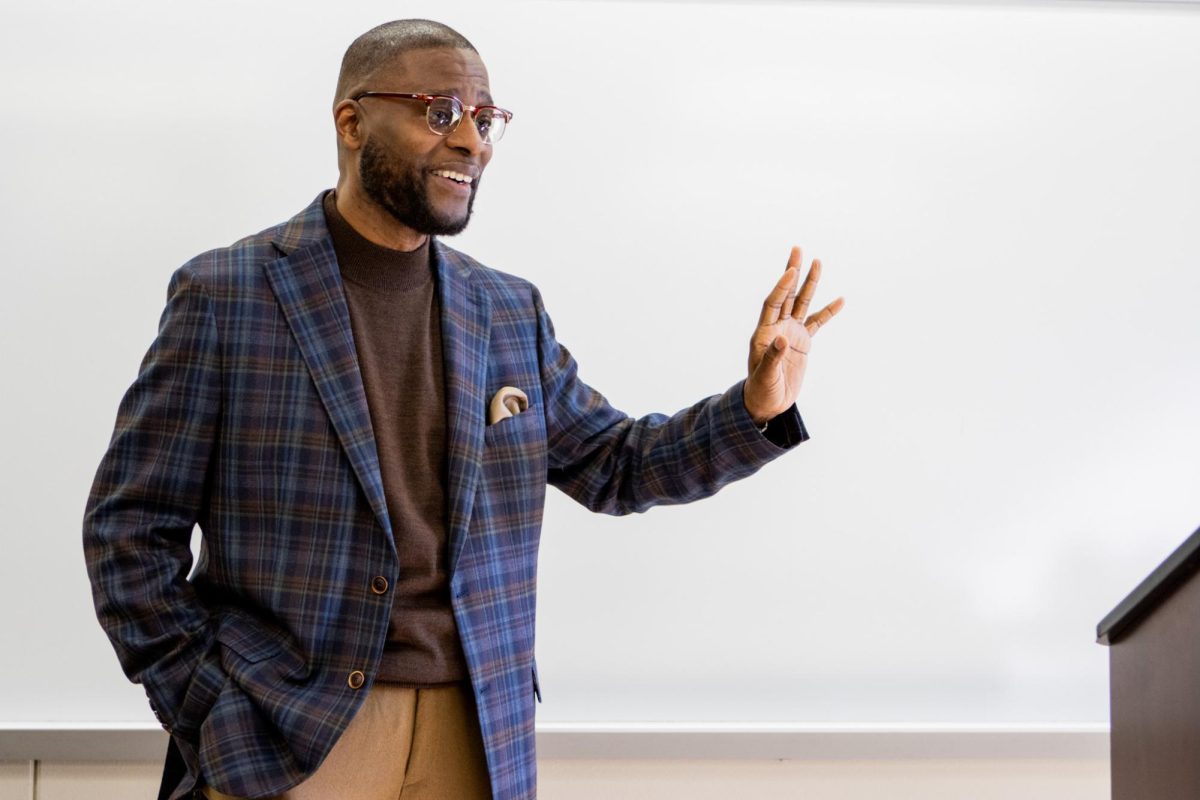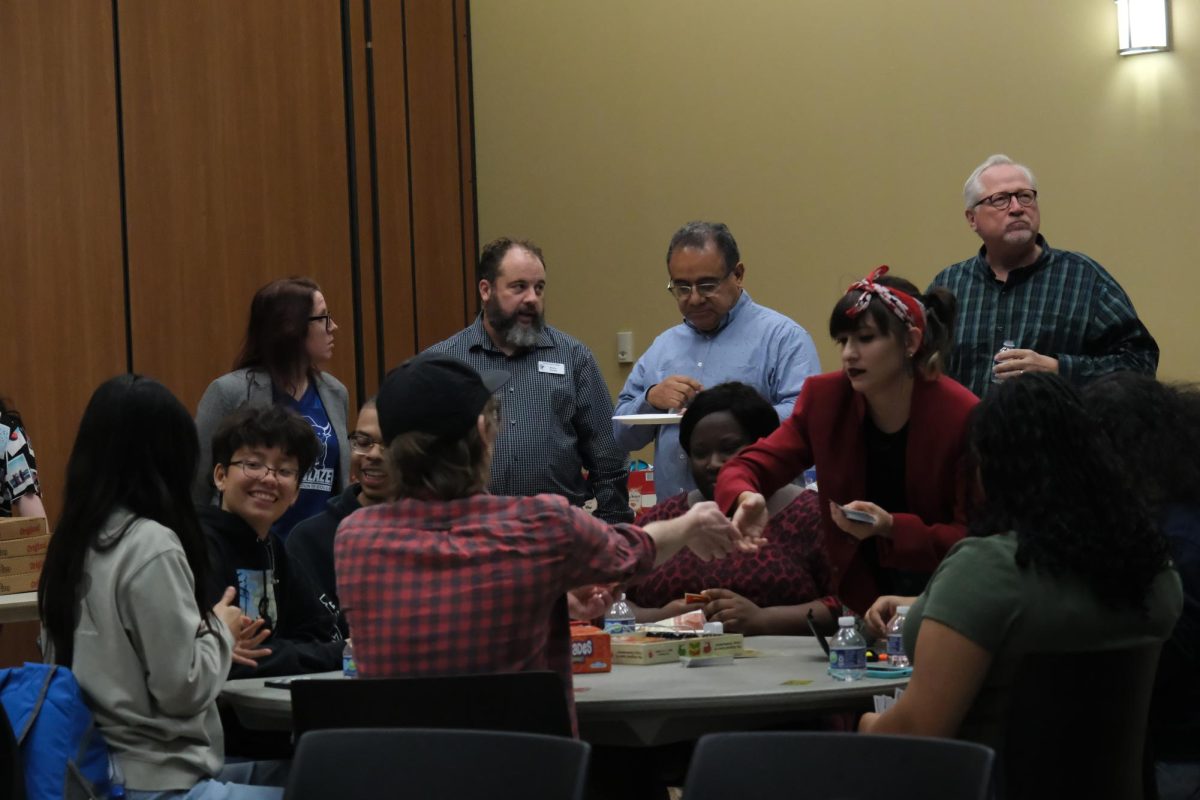As a long-time first responder, Daniel White never envisioned experiencing the other side of his work, until one summer his son’s life nearly ended, changing his perspective.
“Long story short, my boy, Owen, was floating face down in the pool,” he said.
White’s son nearly drowned when he jumped into a family friend’s pool without a floatation device.
While White and his wife were able to revive their son with CPR, a responding Azle Police Department officer showed him the impact of emergency personnel and the importance of high-caliber treatment for every victim.
“The officer moved with a sense of purpose,” he said. “He was professional. He knew where his automated external defibrillator was and he was ready to roll. That’s why I know that it matters.”
Daniel White oversees DFW Airport as fire chief, the second-largest international airport with 81 million travelers annually. His journey began asa medic in the Airforce leading him to NW Campus’ paramedic academy.
“[The academy] opened my aperture,” he said. “My biggest takeaway was the value of perspective, understanding the common challenges among the cities, jurisdictions and how we then share with each other. It’s built associations that when another department has an issue, we can help.”
Now as a leader, White wants his firefighters to display the same level of tenacity that saved his son’s life.
“What we’ve really tried to place a heavy focus on the last two years is treating people like they’re a member of your family,” he said. “The person you’re encountering, no matter how ill or critical, they’re someone’s family member.”
White believes how well his team treats others starts internally. Immediately following his promotion, he worked to bring back connection and communication.
“The department was going through a huge transition,” White said. “We had the grand opportunity to reset the focus, reset the table and start anew.”
Mark Gray, a captain for the regulatory compliance and planning commission department, said those characteristics were neglected by White’s predecessor.
“Our previous chief played everything close to the vest,” he said. “Information was power and he didn’t want to share it. [White] knows all the new guy’s names. There’s been some past in our hierarchy that would have to look down at your shirt to know who you are.”
Gray said White continuously went above and beyond to lead and support his staff.
“There was a firefighter specialist whose mother passed last month,” Gray said. “Dan was standing next to me at the funeral. I don’t think our previous administration would have even known [she had passed].”
As he moved through the ranks, White said he had his share of mistakes, particularly when leading tenured members of an unfamiliar department. Mario Herrera, a captain in the fire marshal’s office, said with each error, White took accountability.
“[White] takes ownership for all of his decisions,” he said. “He’s touched a bit of every department, so he really takes ownership of the fire department as a whole.”
That commitment to finding solutions was what helped shape the department into what it is today, Herrera said.
“He brings the family feel to the fire department,” he said. “You look to leadership as an example, and so from him taking an interest in us, it makes us committed. It makes us want to be invested in our work.”
White said with his opportunity to set the tone and expectation for his firefighters, he always wants the job to start with professionalism.
“When an ambulance comes to my house or when a fire department shows up, does it matter that they have highly shined boots and that their uniforms are not creased?” he said. “But it gives the appearance of confidence, of people that have it together and are ready to roll.”
His time in the military instilled his dedication to professionalism, and his role as a medic was White’s biggest passion in public safety, but he never envisioned his title as chief.
“I was pretty passionate, sometimes to a fault,” he said. “At a certain point, I realized, I should be a contributor, and how do I contribute in each level to improve what we’re doing here and not complain.”
He said a lesson he’s still accepting is that while his love for being a first responder started on the field, his responsibilities now reside behind the scenes.
“That’s a personal challenge for me, relinquishing certain things to take on a bigger role, a bigger frame, and now being more of a coordinator,” he said. “You’re managing people, and their expectations and sometimes their emotions. It’s valuable, and you can’t turn away from it.”
Assistant Fire Chief Crystal Whiteside, recounted a time when White served as a collaborative leader who helped to search for solutions without undermining his team
“We had two aircraft alerts going at the same time, and he showed up, knowing that I was a new battalion, and stood by my side and didn’t try to take over the call,” she said. “He was going out to the individuals on the aircraft, reassuring them and seeing if they needed anything. He was involved, but he was letting his leaders lead. He was finding roles to lead in other ways.”
She said White leads first with compassion and seeks to understand, utilizing the skill sets and personal passions of each firefighter.
“There’s a higher level of productivity,” she said. “We work to support him because that’s somebody you want to work for.”
Along with boosting employee morale, this approach brought positive changes for the people they serve, including increasing survival rates in a cardiovascular emergency.
“We’ve gotten feedback from family members and from people we’ve treated. We do engagement scores every year and the fire service has done incredible,” he said. “We probably lead the nation in many of the metrics that relate to cardiac resuscitation, and it’s because of a system that’s taken commitment and people that believe in it and execute.”
However, for White, the well-being of the community he serves is the most important measurement.
“The real metric that we focus on is actual survival,” he said. “Survival doesn’t mean you just make it to the hospital with a pulse. It means you made it to the hospital, you left the hospital and you went home to your family.”
Throughout his 17 years of serving alongside White, Gray said his intensity and determination continued to keep his staff at ease.
“I was never afraid when Dan was on the call because he took charge,” he said. “He would tell you exactly what he needed, and he was a calming influence in the midst of chaos.”



























